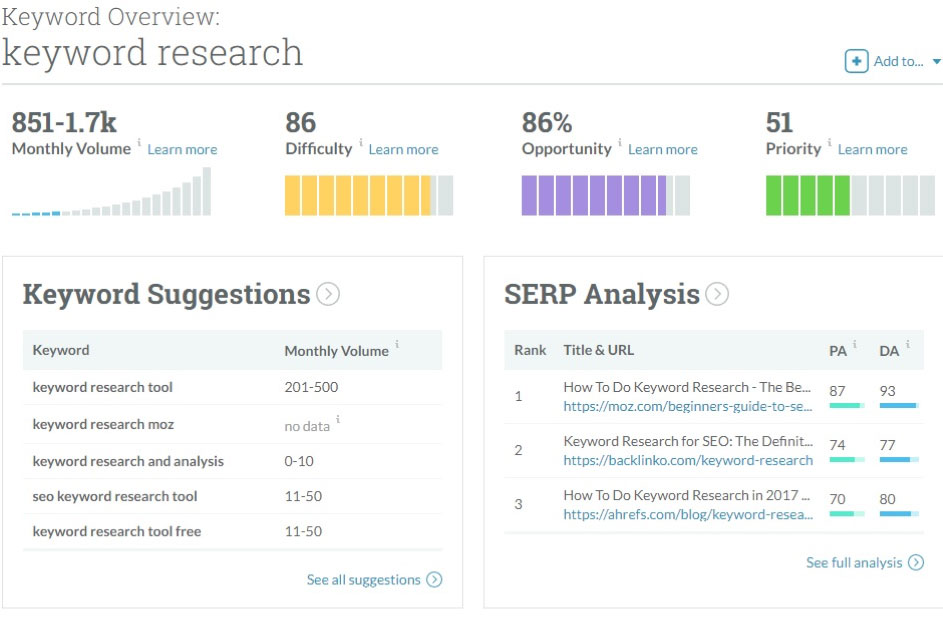How to Do Keyword Research For Ecommerce: Best Resources For Store Owners

It is no secret that a good SEO strategy is an invaluable asset to any business. Yet, while there are plenty of checklists for optimizing your on-site SEO, the whole process may feel overwhelming and, without guidance, it can be hard to figure out where to start.
As with most things in business, it is sensible to approach your marketing strategy one step at a time. This allows you to give your full attention to each aspect of your business, ensuring it is up to standard before you move on.
Keyword research is one such aspect and is a critical part not only of SEO optimization but of the establishment of your brand image. With that in mind, here are some of the most effective ways to track down the right keywords for your business, and give your brand a healthy head start.
Nailing Your Niche
Whatever your industry may be, defining your niche is a fantastic way to stay one step ahead of the competition. For example, trying to compete for the keyword “women’s gloves” could be challenging, as there are far too many competitors, including many high-profile sites. In contrast, “women’s combat gloves”, or “impact-resistant women’s gloves” will attract specifically women looking for protective gloves, for combat sports, or DIY.
While this is a smaller market, it is also less competitive and will attract search engine users who already have a firm idea of what they are looking for. You could then supply other sporting goods or even other types of glove, but your niche will be what defines your business and drives your keyword research.
To truly capitalize on your niche, you should consider exactly what it is that makes your business stand out, and does so in a way that is likely to appeal to your target demographic. Once you have a few ideas, take some time to list potential keyword phrases and comparing their performance metrics. You should also think about keyword targeting when mapping out a site structure for SEO.
Making Sense of Metrics
At a glance, search volume might seem like the only metric that really matters when searching for the perfect keyword. However, while they are definitely important, search volume statistics can not only be misleading, but they are also just one part of a far bigger picture.
To identify the most appropriate keywords for your business, you will need to consider a range of different performance statistics, and the relevance of those statistics to your business needs. A few you might consider include the following:
- Competition metrics and difficulty scores. These give you an idea of how hard it might be to rank for a given keyword, and where that competition lies.
- Value metrics, such as suggested bid prices, and estimated first position value metrics. These help to determine the potential returns a given keyword could bring.
- On-site metrics. Look at your existing keyword rankings. If you are already doing well with a particular word or phrase, it may pay to build on that success, and use it to inform your selection of additional keywords. You should also be aware of your average cost-per-click, so you can weigh your existing costs against your potential for growth.
- Search analytics metrics, including search volume over time, the potential for traffic growth, and the number of results for a given keyword.
- Demographic metrics. These are great for accurately targeting your keywords, as they provide demographical data for applicable sites within the target industry.
More complex metrics can then be drawn by combining these data sets. For example, a keyword’s match type ratio is determined by dividing its broad match into its exact match search volume. This helps to determine whether similar keywords have a uniform intent, or whether they are targeting unrelated things.
Another hybrid metric is KOB (keyword opposition to benefit), calculated by dividing a keyword’s estimated first position value by its difficulty rating. This is a good way to get an idea of a keyword’s potential ROI, by simultaneously evaluating its projected cost, competition, and effectiveness.
Read this beginner’s guide to keyword research to help you make sense of keyword metrics.
Optimizing Your Approach
While there will be a few keywords for every industry that top the charts, these are not always the best choices for your business. For example, if you are running a small startup, it is unlikely that you will be able to rank well for the top few keywords. Yet this does not mean that you cannot do well with a similar set of keywords.
Once you have chosen your niche, it becomes far easier to target long-tail keywords, and this is likely to be where the bulk of your success comes from. These keyword phrases are so-named because they fall into the “long tail” of graphs showing keyword cost and competitiveness. They should be very specific to your niche, and target key products or features that your customers are likely to search for.
The value of this is that not only is there less competition for a niche keyphrase but also when a customer carries out a highly specific search, it is far more likely that they are ready to make a purchase. This is because the customer has already decided exactly what they want, so all you need to do is demonstrate that you can provide it.
![]() Image Credit: Screencap from KWFinder
Image Credit: Screencap from KWFinder
Future-Proofing and Repurposing
As time goes on, it becomes more and more important to keep track of how and where you have used individual keywords. While it can be tempting to target one or two high-value keywords throughout your website, this can backfire if done to excess.
Even the best keywords have diminishing returns, as the more pages you have ranking for those keywords, the more competition you are generating for yourself. Once your pages begin competing with each other, you are automatically reducing your returns for any given page. This is known as keyword cannibalization and is a vital factor to keep in mind when planning your content.
Another issue to keep in mind when selecting keywords is that they do not all remain relevant. Seasonal keywords, for example, are only useful at the associated time of year. While it is fine to have some targeted keywords with shorter lifespans, be sure to include evergreen keywords as well, so your content remains relevant and searchable.
Tools of the Trade
Conducting effective keyword research takes time, effort, and a reasonable amount of comprehension. Fortunately, a huge part of the work can be done by business tools, many of which are free or have flexible pricing structures.
The majority of these resources can also be fully integrated with your chosen CMS or store-building platform, enabling you to more successfully target and implement your findings.
Some of the most popular keyword research resources available today include the following:
- Moz – easy to use and offering a range of useful metrics, Moz is a great first stop on your research journey. You receive 20 free searches per month, and the data is presented in a clear and easy-to-interpret format.
- SEMRush – offering a full marketing toolkit, SEMRush is great for carrying out SEO audits, tracking your rankings over time, and identifying means to grow your traffic.
- SpyFu – this handy tool allows you to see the keywords targeted by your competitors, with details including AdWords purchases, organic ranking statistics, and ad test results.
- KWFinder – offering helpful metrics such as SEO difficulty, and monthly search volumes, this is the resource to use if you want to pinpoint long-tail keywords within your industry.
- Google Keyword Planner – the first stop for many businesses taking their first steps in the field of keyword research, Google offers a range of tools which provide insights into keyword strengths, variations, and competition metrics.
- Wordtracker – another useful resource for finding long-tail keywords, Wordtracker allows you to organize and filter your keywords according to your needs.
- Keyword Discovery – with a substantial knowledge database, Keyword Discovery incorporates many useful tools for analyzing keyword worth, including historical trends data, bid valuation, and competitor insights.
 Image Credit: Screencap from Moz
Image Credit: Screencap from Moz
Effective keyword research is an art. Even so, you will quickly develop an understanding of what works for your business, and be able to pinpoint useful keywords far more efficiently as time goes on. The various metrics and technical terminology can be overwhelming at first glance, but before long you will be able to distinguish the data that counts, and get the most out of your keyword research.
It can require a significant investment of time and resources to begin with, yet the returns are worth the effort. So whether you are in the process of establishing a brand new online store, or boosting sales on an existing site, take some time to identify the right keywords to target, and give your business a headstart in the competitive landscape of online SEO.
Have a question or comment?
We’d love to hear your thoughts on this article. You can find us on Twitter!
- 6 Quick & Dirty Keyword Research Hacks for Small Businesses - October 25, 2018
- How to Do Keyword Research For Ecommerce: Best Resources For Store Owners - October 5, 2017
